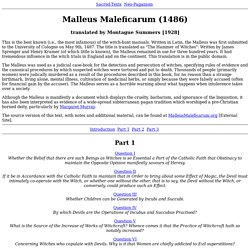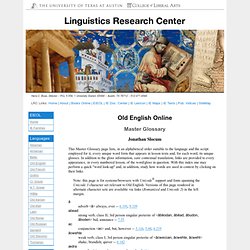

25 maps that explain the English language. English is the language of Shakespeare and the language of Chaucer.

It’s spoken in dozens of countries around the world, from the United States to a tiny island named Tristan da Cunha. It reflects the influences of centuries of international exchange, including conquest and colonization, from the Vikings through the 21st century. Here are 25 maps and charts that explain how English got started and evolved into the differently accented languages spoken today. The origins of English 1) Where English comes from English, like more than 400 other languages, is part of the Indo-European language family, sharing common roots not just with German and French but with Russian, Hindi, Punjabi, and Persian. 2) Where Indo-European languages are spoken in Europe today Saying that English is Indo-European, though, doesn’t really narrow it down much. 3) The Anglo-Saxon migration. How Unrecognizable Was The English Language Just 300 Years Ago? – The Writer's Circle.
Hear What Hamlet, Richard III & King Lear Sounded Like in Shakespeare's Original Pronunciation. As we highlighted a few days ago, recent findings by South African scientists suggest that William Shakespeare may have smoked pot, possibly composing some of his celebrated plays while under the influence.

Their research is sure to spark controversy among Shakespeare scholars and historians alike, but it’s certainly a more interesting controversy than the tired debate about whether Shakespeare wrote his plays at all. Perhaps even more interesting than Shakespeare’s drug of choice for lovers of his language are debates about what Shakespeare’s plays might have sounded like to his original audiences. In other words, high or not, what might Shakespeare, his actors, and his audience have sounded like when they spoke the language we call English. Of course they called the language English as well, but we might not recognize some words as such when hearing Shakespeare’s accent aloud. Related Content: English Timeline. 196.jpg (JPEG Image, 1250 × 1762 pixels) - Scaled (56%) What the English of Shakespeare, Beowulf, and King Arthur actually sounded like. Let's hop into a time machine and go back to the England of yore!

If this were a movie, no matter when we got out of the machine, we could walk up to people and start talking. It could be medieval times or the age of King Arthur's round table, and they'd just say, "Who art thou, varlet? " and we'd reply with something like, "We, uh, would-eth like-eth some beer-eth," and we'd all party.
Yeah, no. I mean, of course they have to do that in movies, because we need to understand them. Shakespearean England First stop: the early 1600s. James Harbeck What Americans will sound like in 2050 Stop calling possessives 'possessive' Medieval England Next stop: the 1300s. Whan that Aprill, with his shoures sooteThe droghte of March hath perced to the rooteAnd bathed every veyne in swich licour,Of which vertu engendred is the flour You can probably sort out what's being said, generally. Here's a bit of the text (the þ characters are how we used to write th): But wait, there's more. Old English Hwæt! Malleus Maleficarum Index. This is the best known (i.e., the most infamous) of the witch-hunt manuals.

Written in Latin, the Malleus was first submitted to the University of Cologne on May 9th, 1487. The title is translated as "The Hammer of Witches". Written by James Sprenger and Henry Kramer (of which little is known), the Malleus remained in use for three hundred years. It had tremendous influence in the witch trials in England and on the continent. This translation is in the public domain. The Malleus was used as a judicial case-book for the detection and persecution of witches, specifying rules of evidence and the canonical procedures by which suspected witches were tortured and put to death.
Bright's Old English Glossary. The Literature Network: Online classic literature, poems, and quotes. Essays & Summaries. 449-1066 Anglo-Saxon. Old English Online: Master Glossary. Hans C.

Boas, Director :: PCL 5.556, 1 University Station S5490 :: Austin, TX 78712 :: 512-471-4566 Jonathan Slocum This Master Glossary page lists, in an alphabetical order suitable to the language and the script employed for it, every unique word form that appears in lesson texts and, for each word, its unique glosses. In addition to the gloss information, sans contextual translation, links are provided to every appearance, in every numbered lesson, of the word/gloss in question. With this index one may perform a quick "word look-up" and, in addition, study how words are used in context by clicking on their links. Note: this page is for systems/browsers with Unicode® support and fonts spanning the Unicode 3 character set relevant to Old English. Ā adverb <ā> always, ever -- 6.193, 9.339 abead. The Complete Corpus of Anglo-Saxon Poetry.